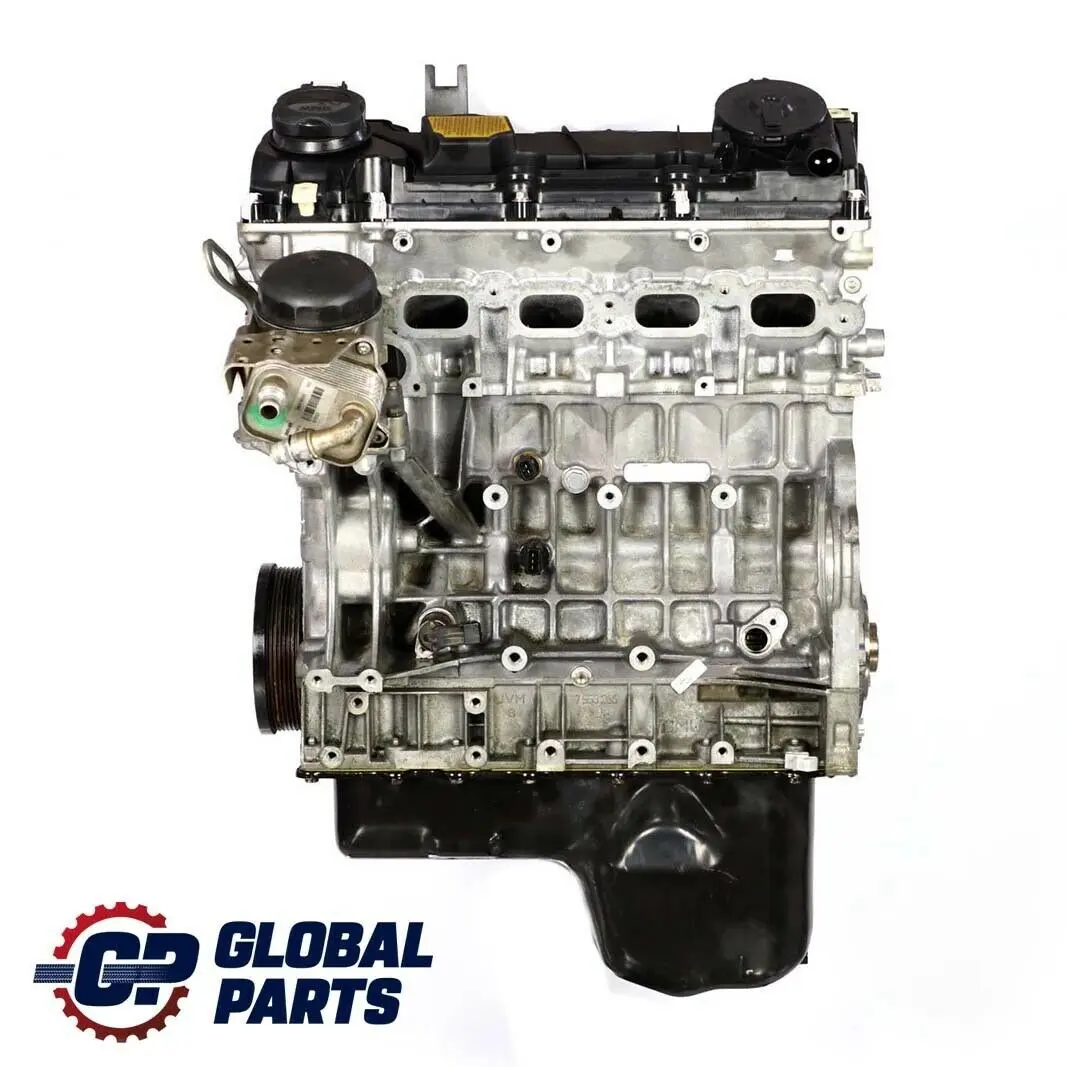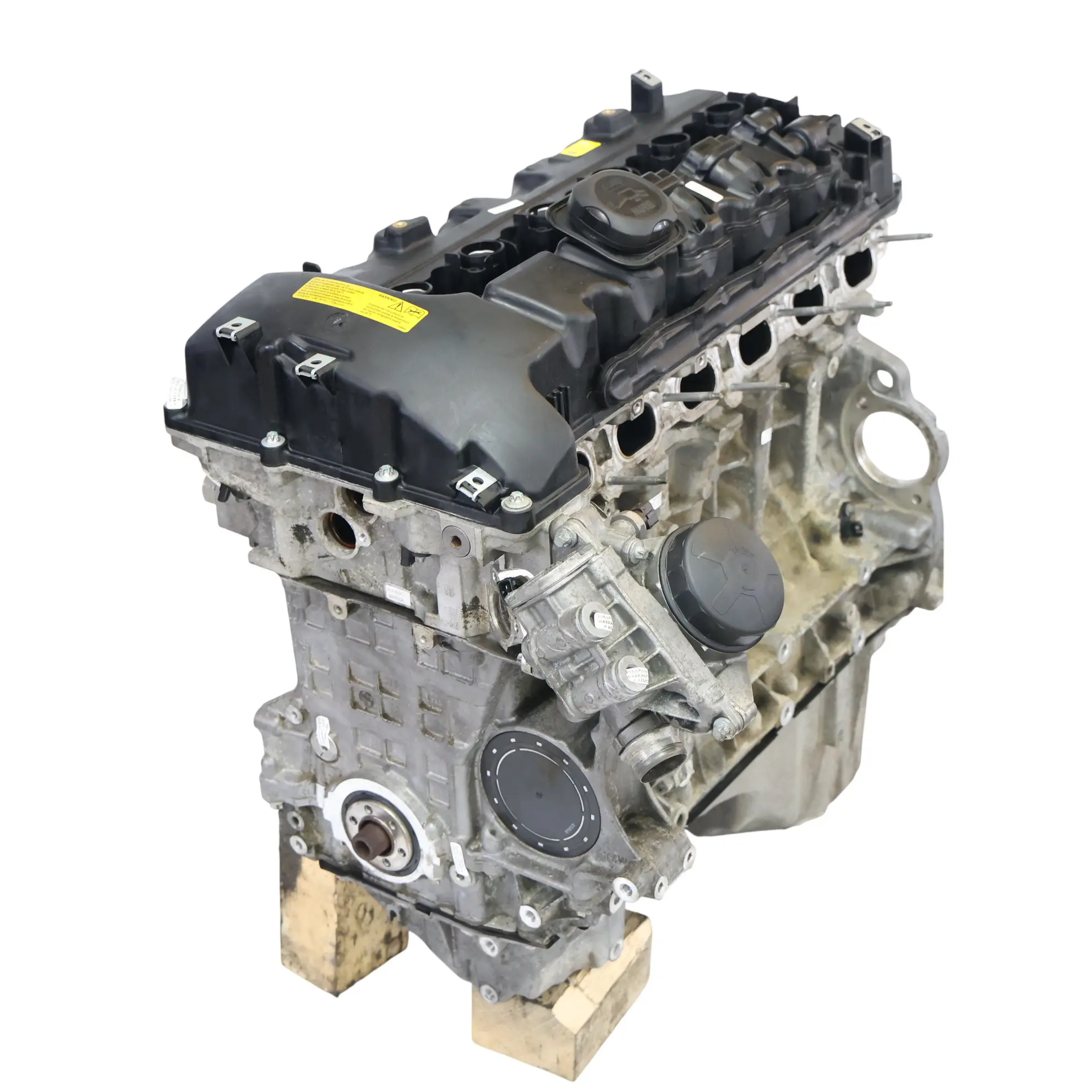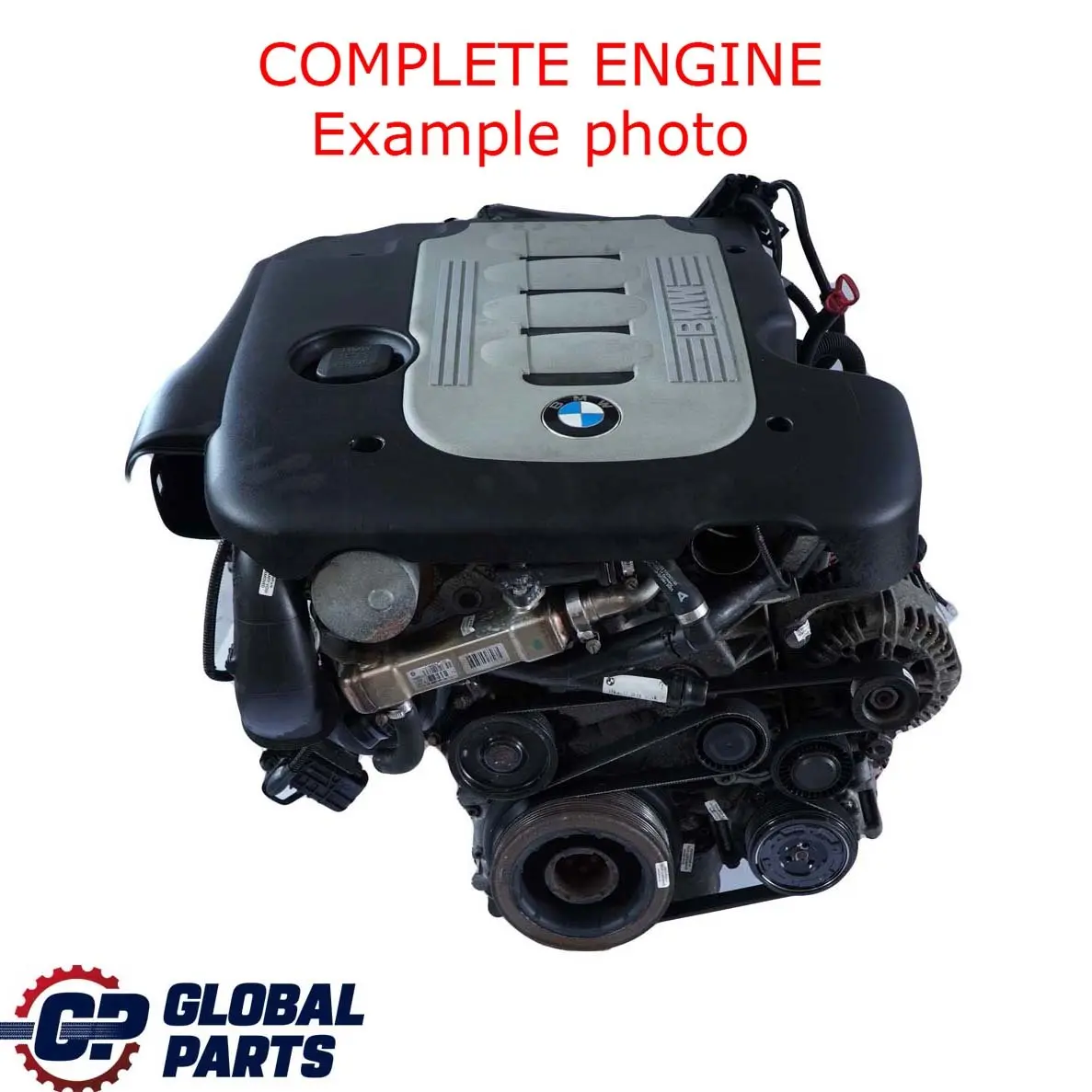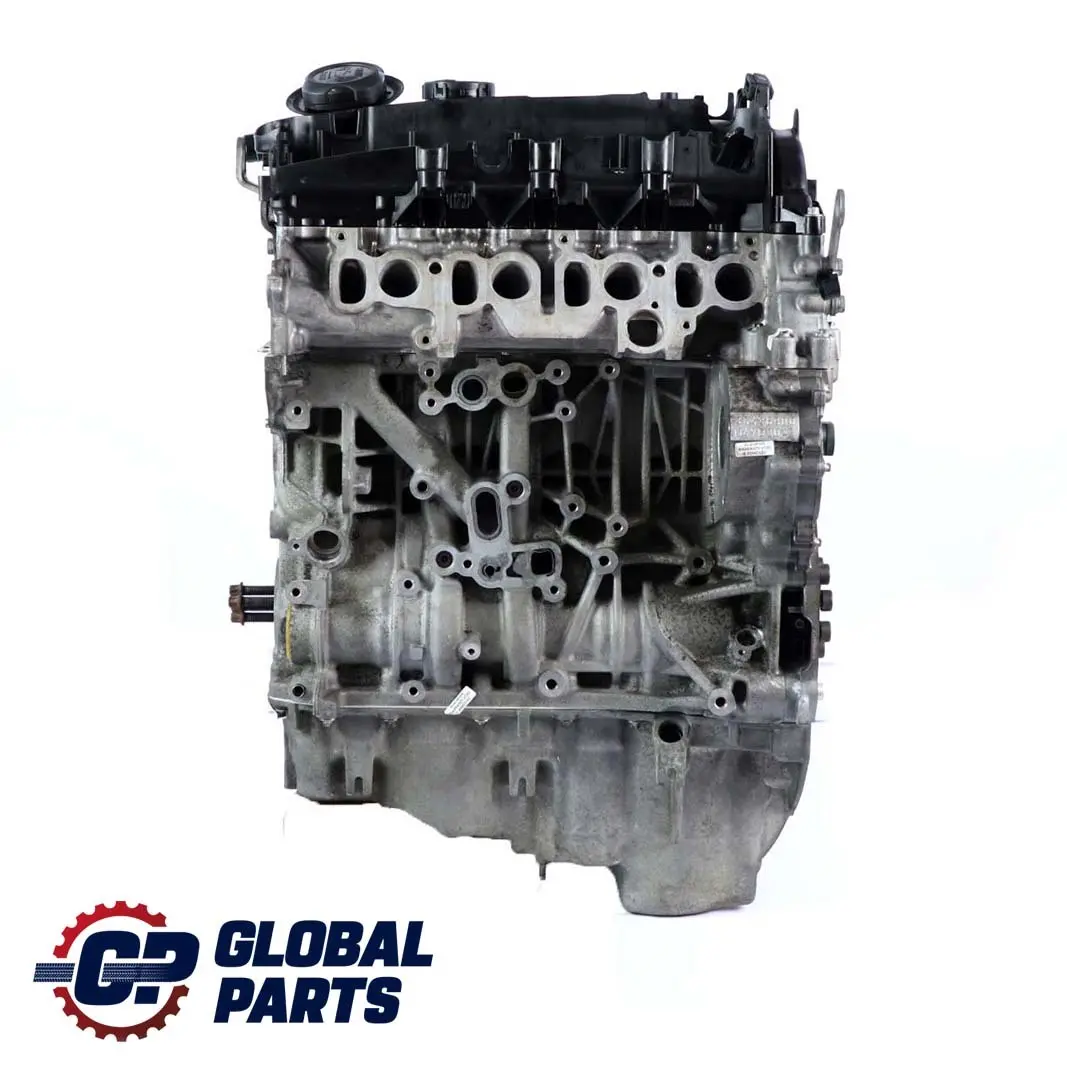How to Buy a Used Car Engine and Avoid a Landmine – A Step-by-Step Guide
Buying a used car engine is often the optimal solution for those who want to revitalize their car without spending a fortune on a new engine. However, to avoid getting caught out and incurring additional costs or problems, it's worth approaching this process with caution and the right knowledge. Below, you'll find a step-by-step guide on how to buy a used engine, what to look for, and where to look for one.
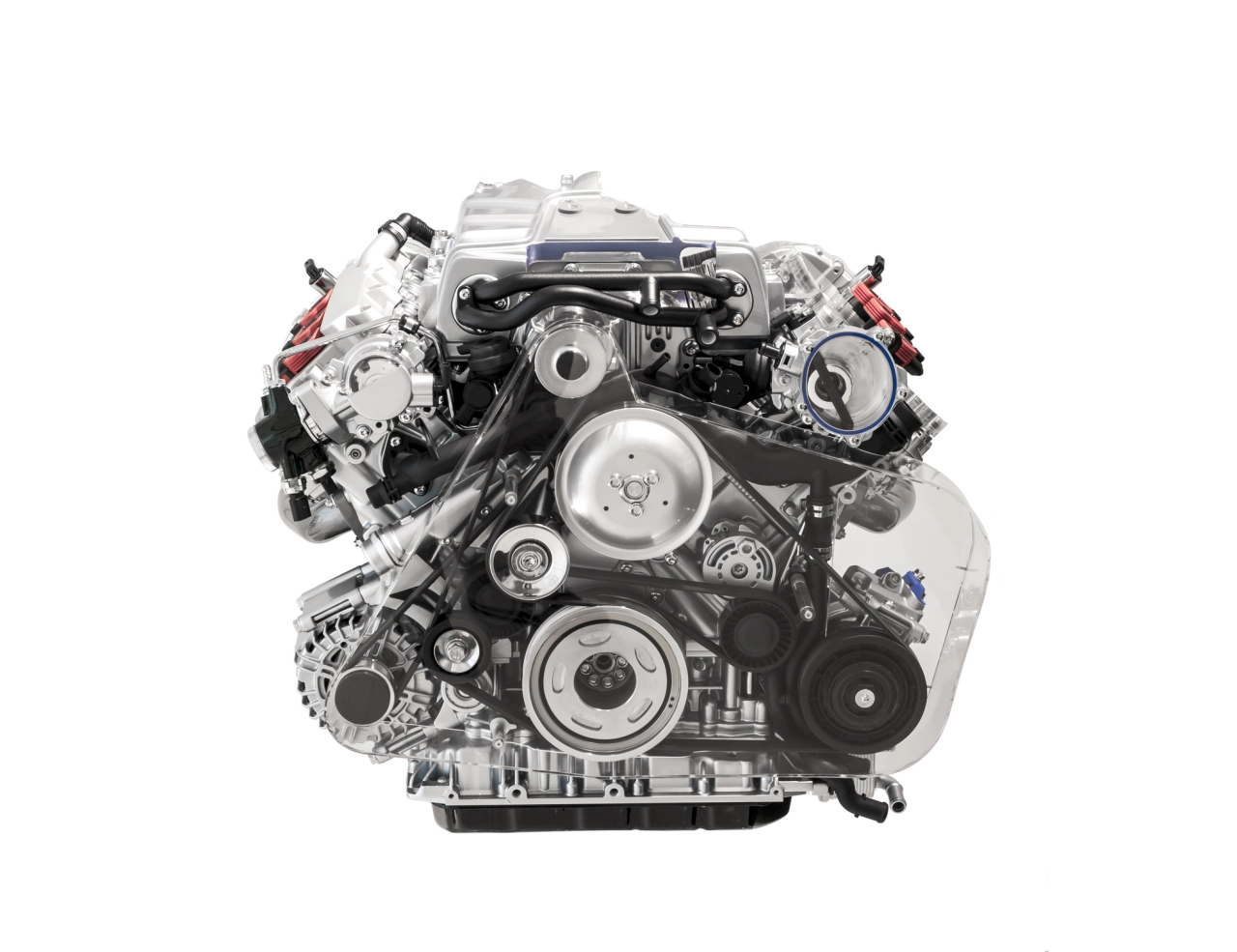
Why should you consider buying a used engine?
Used car engines This is often a cheaper alternative to new engines or expensive engine overhauls. At Global Parts, you'll find a wide selection of original, used engines from salvage vehicles. All engines have undergone thorough quality inspection. Importantly, we offer used engines with warranties, providing added peace of mind when purchasing.
Step 1: Check engine compatibility with your car
The most important aspect when purchasing a used engine is its full compatibility with your vehicle. Pay attention to:
- Engine code – this is a unique identifier that must match the one installed in your model.
- Matching based on the VIN number – at Global Parts, we check and match every engine to your car based on the VIN number.
- Vehicle year – even small differences between years can mean differences in equipment, sensors or electrical harnesses.
- Engine Type – For example, if you are looking for a bmw e90 engine, please make sure it is the correct variant, e.g. N55 engine or e90 BMW 335i engine, that fits your model (e.g. BMW 335i, BMW e92 335i engine, BMW e60 engine). Accurate fit is essential to avoid problems with installation and subsequent operation.
Step 2: Choose an engine with a warranty
Purchasing an engine without a warranty is risky – in the event of a breakdown, you could be left with expensive repairs. Therefore, choose suppliers who offer warranties on used engines. Global Parts provides a 90-day warranty on the engines it sells, which is a significant advantage and speaks volumes about the quality of its products. The warranty also confirms that the engine has undergone appropriate testing and is in good working order.
Step 3: Prepare for Engine Installation
Installing a used engine involves not only replacing the engine itself, but also replacing the wear and tear components that affect its service life. During installation, it's worth replacing:
- Seals.
- Oil filter.
- Timing belt or timing chain.
- Consumable items. This is a small cost compared to the peace of mind that comes with knowing that the engine will run smoothly and won't require disassembly again anytime soon.
Step 4: Formalities after engine replacement
In Poland, replacing an engine with a unit with identical parameters does not require notification to the Department of Motor Vehicles. However, if an engine with different parameters is installed, it is necessary to report the change and update the data in the vehicle registration certificate.
Where is the best place to buy a used car engine?
It is safest to buy engines from trusted companies that offer original used engines with a warranty, such as Global Parts Avoid buying from private sellers without a warranty, as the risk of purchasing a faulty engine is much greater.
Is it safe to buy a used engine?
Yes, provided you purchase from a reputable supplier and thoroughly inspect the engine before purchase. It's also worth having a professional mechanic assess the engine's condition before installation. , especially those with a warranty, can be as reliable as new ones, and are often even more proven in practice.
What's better – buy a used engine or have yours overhauled?
The decision depends on the condition of your current engine and the cost of the overhaul. Engine overhauls can be expensive and time-consuming, and the end result isn't always guaranteed. Buying a used engine with a warranty provides a ready-to-install unit that can last for many years. It's worth comparing the prices and lead times of both options, but a used engine from a reliable source is often more cost-effective.
What is a low mileage engine?
A low-mileage engine is one that has driven relatively few kilometers, which typically translates to less wear and tear and a longer lifespan. When purchasing a used engine, it's worth looking for those with mileage appropriate to the age and type of vehicle and that have been regularly serviced.
Engines from famous brands: BMW and Mercedes
Among the popular brands, BMW engines, especially such as BMW e90 engine , BMW e60 engine, or the M57 engine, are valued for their durability and performance. Mercedes engines are also They are considered solid and durable. However, the choice depends on the car model and individual needs. At Global Parts, you'll find original engines used in the 2009 BMW 335d., BMW 335i, BMW e92 335i and Mercedes engines, allowing you to choose the perfect unit for your car.
Why choose a used engine?
Buying a used engine is a great way to get your car running again without breaking the bank. The key to success is:
- Precise matching of the engine to the car.
- Checking the history and technical condition of the engine.
- Choosing a supplier offering a warranty.
- Professional installation and replacement of consumables. Global Parts is a place where you'll find a wide selection of original, used engines for various models, including popular BMW and Mercedes engines, with warranties and expert advice. This means you can be sure your used engine will serve you well for a long time. With this approach , purchasing a used engine will become simple and safe - you won't have to worry about "land mines" and your car will gain a new lease on life!
Definitions and parameters – engine codes and "core compatibility" (VIN/OEM/PN)
B58 / N55 / N52B30 / M54/M54B30 engine (BMW), N47 / N46B20 engine (BMW diesel/petrol), BKC /BXE/BKD engine (VW 1.9 TDI), **CRDi engine (Hyundai/Kia family), Audi A4 B6 engine (1.8T/1.9 TDI/2.0) – these are the names/designations of the families that directly connect to the equipment, wiring harness, and control unit. In practice, the selection of a used engine is based on the VIN + PN/OEM (e.g., control unit, injectors, turbo) and basic parameters: number of cylinders, boost, sensor generation/DPF. Such mapping ensures plug-in compatibility and predictable installation .
Step-by-step procedure for fitting a used engine (assembly practice)
Step 1 – Identification by VIN/code: determine the code (e.g. B58 / N55 / N47 / N52B30 / M54B25/M54B30 engine, BKC/BXE/BKD engine, Audi A4 B6 engine ) and check the version of the accessories (sensors, collectors, pulleys). Step 2 – Technical parameters: confirm cylinder compression (PB typically ~10–14 bar, diesel ~18–25 bar ), intake/cooling system tightness and oil standard; verify harness/ECU compatibility (PN). Step 3 – Installation and start-up: seal kit, fresh oil/fluids/filters; throttle adaptations/DDE/ECU relearn (after TDI/CRDi), system bleeding. Work on the drivetrain/controllers should be performed by a mechanic/service technician.
Which engine is the “least reliable” for the E90 and what about popular units?
In everyday use, the N52B30A inline petrol engines perform well. (simple architecture, no direct injection) and the classic M54/M54B25/M54B30 – provided service and the correct oil specification are maintained. The N47 offers flexibility and low fuel consumption, but requires conscious timing selection; in VAG BKC/BXE/BKD they differ in their accessories and DPF standard. The modern B58 (turbo) combines great potential with durability – with proper cooling and service. In the Audi A4 B6 engine segment (1.8T/1.9 TDI) and Mondeo MK4 engine (2.0/2.2 TDCi) the decision depends on the availability of kits "with accessories" - such kits shorten the installation time and costs.
Table – overview of selected engines (codes, power, fitting instructions)
| Code/phrase | Fuel | Typical powers* | Example platforms | Matching Indication (VIN/PN) |
|---|---|---|---|---|
| B58 (BMW) | PB turbo | 326–387 hp | 3er/5er/X | Cooling/turbo hardware compatibility; ECU by VIN |
| N55 (BMW) | PB turbo | 306–340 hp | E9x/Fxx | injection/coils according to PN; unblocked intercooler |
| N52B30 (BMW) | PB NA | 218–272 hp | E90/E60 | intake/pneumothorax other than N46; plug-in by VIN |
| M54B25/M54B30 (BMW) | PB NA | 192 / 231 HP | E46/E39/E60 | collectors/probes by year; simple integration |
| N47 (BMW) | Diesel | 143–184 hp | E9x/Fxx | timing according to version; DDE according to harness |
| BKC/BXE/BKD (VW 1.9/2.0 TDI) | Diesel | 90–105–140 hp | A3/Passat/Octavia | various injectors/DPF – selection by PN |
| Audi A4 B6 engine | PB/Diesel | 101–190 hp | A4 B6 | controller/harness by year |
| Mondeo MK4 engine | PB/Diesel | 120–200+ HP | Mondeo Mk4 | accessories (unit injector/CR) for VIN version |
| CRDi engine (Hyundai/Kia) | Diesel | 90–200 hp | i30/Ceed/Sorento | Injector/ECU code; various sensors |
FAQ: QUESTIONS AND ANSWERS
| Question | Answer |
|---|---|
| 1) What does "matching by VIN and PN/OEM" mean when purchasing an engine? | Verification of unit code and accessory numbers (ECU, injectors, sensors) which guarantees plug-in compatibility. |
| 2) E90 – which engine is the least reliable for everyday driving? | Often indicated N52B30 (NA petrol) when properly serviced; in diesel the decision depends on the timing history of the N47. |
| 3) What is the difference between BKC/BXE/BKD in VAG? | Accessories and controls (DPF/injection/EGR); the correct PN determines installation without modifications. |
| 4) Is a used engine more profitable than a renovation? | When the total cost of machining and parts exceeds the value of the car, a complete unit with a warranty may be faster and cheaper. |
| 5) What compression values are considered healthy? | PB ~10–14 bar, diesel ~18–25 bar and similar results in each cylinder. |
| 6) Will the Audi A6/A4 B6 engine start immediately? | Yes, if the engine code and accessories PN match the year/harness; if different, ECU coding is required. |
| 7) Where to confirm engine fit and availability? | At Global Parts – selection by VIN/OEM/PN, assembly support; entrust drive work to a service/mechanic. |
